The scene is Brinley Hall, Worcester,
MA 1850 and the play consists of excerpts from the words of 6
women's rights leaders of the time - Paulina
Wright Davis, Sojourner Truth, Lucretia
Mott, Abby Price, Harriot Hunt, Elizabeth Cady Stanton, Lucy Stone,
Ernestine Rose, Abby Foster -
along with remarks from the Narrator.
|
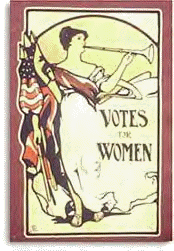
|
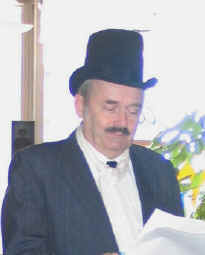
Narrator - John Lovaas
|
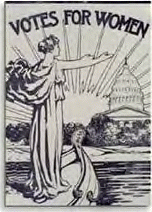
Women's Suffrage Posters
(National Women's
History Museum)
|

|
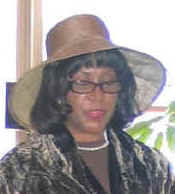
Patricia Shelton
as Paulina Davis
|
PAULINA
WRIGHT DAVIS (1813-1876)
Convention President from Rhode Island
American lecturer and suffragist, born
Paulina Kellogg in Bloomfield, NY in 1813, she was married in 1833 to
a merchant, Francis Wright, who died two years later. In 1849 she married
Thomas Davis, who later became a congressman from
Rhode Island. Active in the early antislavery and
women's-rights movements, in 1844 she began to lecture women on
anatomy and physiology and was instrumental in opening the medical
profession to women. In 1853 she founded the first women's-rights
paper in the United States, The
Una, and in 1871 she published A
History of the National Women's Rights Movement.
|

Paulina Wright Davis
|

|
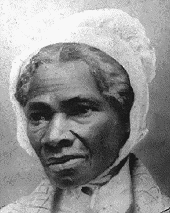
Sojourner Truth
(Isabella Baumfree)
|
SOJOURNER TRUTH,
(1797-1883) one of 13 children of slave parents, was born in Ulster County, a Dutch settlement in
upstate New York. Her given name was Isabella Baumfree. She spoke only Dutch until she was
sold from her family at age 9 and continued to speak with a Dutch accent
for the rest of her life. In
1843, Isabella was inspired by a spiritual revelation that would
forever change her life. She changed her name to Sojourner
Truth
and preached "God's Truth and Plan for Salvation." After
months of travel, she arrived in Northampton, MA, and joined the
utopian community "The Northampton Association for Education
and Industry," where she met and worked with abolitionists
such as William Lloyd Garrison, Frederick Douglass and Olive
Gilbert. Her dictated memoirs were published in 1850 as "The
Narrative of Sojourner Truth: A Northern Slave".
She eventually added abolitionism
and women's suffrage to her causes.
|
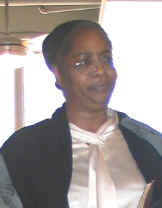
Bea Malone
as Sojourner Truth
|

|
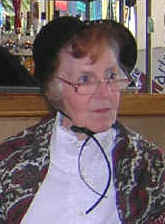
Ann Dailey
as Lucretia Mott
|
LUCRETIA COFFIN MOTT (1793-1880) a Quaker minister from Nantucket, MA, was the first major American
women's activist in the early 1800s
and is credited as the first "feminist" and promoter of women's political advocacy.
She aided fugitive slaves, and following the meeting (1833) of the
American Anti-Slavery Society, she was a leader in organizing the
Philadelphia Female Anti-Slavery Society. She helped organize the First Women's Rights Convention in Seneca Falls, NY in
1848 and devoted her life to the abolition of slavery, women's
rights, school and prison reforms, temperance, peace, and religious
tolerance. Along with
Elizabeth Cady Stanton and
Susan B. Anthony, she is memorialized in the "Suffrage
Statue" on display in the US Capitol rotunda.
|
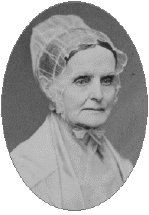
Lucretia Mott
|

|
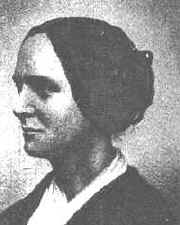
Abby
Kelly Foster
|
ABBY
KELLEY FOSTER, (1810-1887) American abolitionist and advocate of women’s rights,
was born to a Quaker family
near Amherst, MA. She
began her crusade against slavery in 1837 after teaching in several
Quaker schools. In 1845 she married Stephen S. Foster, a radical
abolitionist and reformer. As one of the first female lecturers before
sexually mixed audiences, she was often greeted by listeners with
extreme hostility. After suffering a great deal of abuse, even from
fellow abolitionists, she began to devote more of her efforts toward
women’s rights. During the last 30 years of her active life, she was
prominent as a suffragist.
|
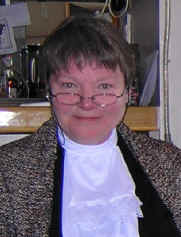
Kaye King as Abby Foster
|

|
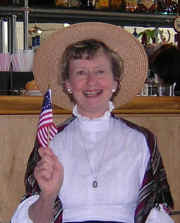
Marilyn Silvey as Abby Price
|
ABBY
HILLS PRICE
(1814-1873) was born in
Franklin, CT. She married Edmund Price, an
unsuccessful hatter with poor investments. She was a women's rights
advocate, who publicly challenged the restricted role for
women in speeches at the first three women's rights conventions
(1850-1852) and in a series of newspaper articles. She
was also very active in the civic affairs of the utopian community
Hopedale, MA where she resided for many years.
|

|

Harriot Hunt
|
HARRIOT HUNT
(1805–1875), a
women's-movement activist and self-taught physician from Boston, organized the Ladies Physiological Society in Boston,
MA in 1843 and was awarded an honorary medical degree from the Female
Medical College of Pennsylvania in 1853. A rebel in every facet of her
life, she fought to abolish slavery, advocated higher education for
women,
and
supported payment for house work
and
child-rearing. For
20 years, Hunt registered a formal "taxation without
representation" protest when she paid her taxes. Her clinical work
rejected the established practice of heavily dosing patients with
medications,
and
instead stressed proper diet, exercise & hygiene.
Glances and Glimpses, published in 1856 is her autobiography.
|
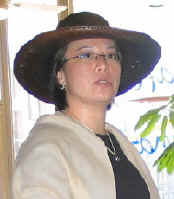
Sandra Hong Li as
Harriot Hunt |

|

Gail Osberg as
E. C. Stanton
|
ELIZABETH C. STANTON
(1815-1902) was unable to attend the convention of 1850 because of
the birth of her fourth child but she sent a letter to be read. The
daughter of a successful lawyer in upstate New York, Elizabeth Cady
rebelled from an early age against restrictive female roles. After
graduating from Troy Female Seminary in 1832, she became active in the
temperance and anti-slavery causes, challenging barriers to female
leadership in both movements. In 1840, she insisted that the word
"obey" be omitted from her wedding vows. Over the next half-century, Stanton energetically
advocated women's rights to participate fully in all areas of social,
intellectual and political life. She is the author of "The
Woman’s Bible", co-author of the first three volumes of
"A History of Woman Suffrage", and published her
autobiography, "Eighty
Years and More", in 1898. |
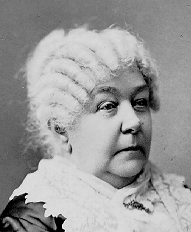
Elizabeth Cady Stanton
|

|
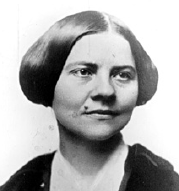
Lucy Stone
|
LUCY
STONE
(1818-1893) was born in West
Brookfield, MA. She was one
of the first women to earn a college
degree in Massachusetts, graduating from Oberlin College in
1847. In that same year she gave her first lecture on woman's
rights in her brother's church at Gardner, MA. She became a lecturer for the Massachusetts Anti-Slavery Society in 1848,
traveling extensively in New England, the West, and Canada. In
1855 she married Henry B. Blackwell (brother of Dr. Elizabeth
Blackwell), a merchant of Cincinnati and an abolitionist,
retaining by his consent her own name. In 1869 she was instrumental in
forming the American Woman's Suffrage Association and became
co-editor of the "Woman's Journal" in Boston.
|

Abby Edwards
as Lucy Stone
|

|
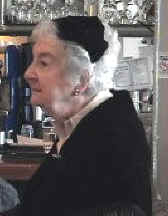
Gertrude Greenberg as Ernestine Rose
|
ERNESTINE
ROSE: (1810-1892)
Ernestine Louise Potowsky, was born in Peterkoff, Poland in 1810, the daughter of
a Jewish rabbi. In 1829 she
visited England, and soon afterward married William E. Rose. In
1836 she came to New York and circulated the first petition for
the property rights of married women.
She lectured in the
chief cities of the United States, and was a delegate from the
National Woman Suffrage Association to the Woman's Industrial
Congress in Berlin in November, 1869. She attended many
woman's-rights conventions, and repeatedly addressed legislative
assemblies.
|

Ernestine
Rose
|

List of some of the Members
at the Women's Rights
Convention of 1850
Mrs. John Stuart Mill's account of the convention of
1850 - "Enfranchisement
of Women"
(appeared in the
Westminster Review in 1851)
Elizabeth
Blackwell's Critique of the 1850 Convention

Women's
Rights
Links Reston-Herndon Area Branch
Homepage
|
![]()
![]()
![]()



![]()


![]()


![]()

![]()


![]()

![]()

![]()


![]()


![]()


![]()
![]()
![]()

